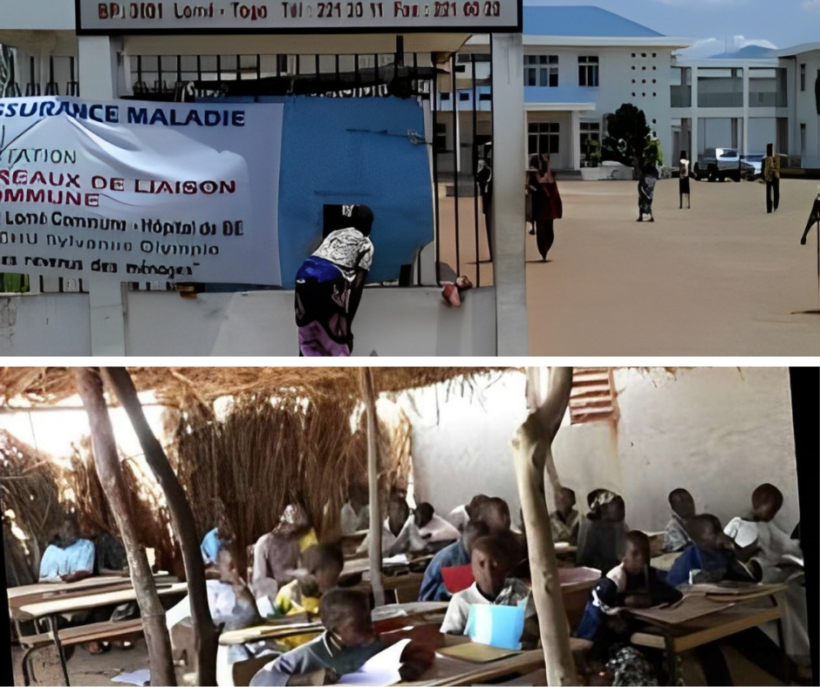Togo’s Authoritarian Spiral: Roots of Violence and Pathways to Sustainable Peace
Lome, on June 02 2025
Togo, a small West African nation, bears the deep scars of an authoritarian regime that has systematically violated its citizens’ fundamental rights. Since independence, successive governments have perpetuated an unbroken cycle of political violence, state repression, and institutionalized impunity. This article examines the historical roots of the Gnassingbé dynasty’s authoritarian rule, analyzes its network of enablers, and proposes concrete pathways toward sustainable peace and democratic governance.
-
Roots of Violences : Un Historical Legacy
-
Colonial Imprint and the Fractured Independence Struggle
The German and then French colonization (1889-1960) imposed a logic of ethnic and regional division, instrumentalized to control the Togolese territory. The 1956 referendum, rigged according to nationalists, “legitimized” the continuation under French trusteeship, triggering massacres such as those in Mango and Pya-Hodo in 1957. (Sources : https://calenda.org/391606?lang=de et https://bit.ly/3Lt5kYz).
The assassination of the first president, Sylvanus Olympio, in 1963—orchestrated by Emmanuel Bodjollé, though Eyadéma later claimed to have personally shot Olympio with France’s support—marked the beginning of a military dictatorship.
- The Gnassingbé Dynasty: Systemic Repression and Injustice
Eyadéma (1967–2005) institutionalized terror throughout his rule using multiple ruthless strategies: a single-party system (RPT), personality cult through staged displays of support, and the repression of opponents (e.g., the execution of Tavio Amorin in 1992 and others). Elections were ‘shams,’ according to the opposition.
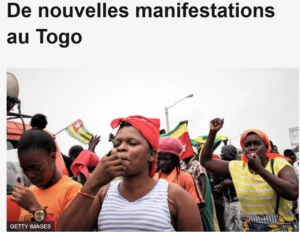
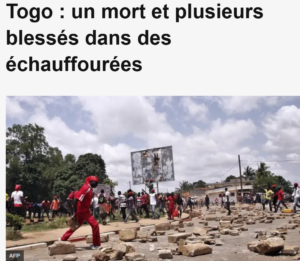
When General Gnassingbé Eyadéma died in February, he was succeeded by his son Faure Gnassingbé under highly flawed and controversial circumstances. And since brute force is their legacy, Faure bypassed the constitution with the army’s backing to carry out his constitutional coup—not once, but twice in the same night.
Since 2005, Faure Gnassingbé has perpetuated this system, this father-to-son inheritance of power. The presidential election he organized was marred by irregularities and disputes, triggering horrific massacres in 2005. The violence stemming from that election left “between 400 and 500 dead” and displaced thousands to neighboring countries in the subregion, according to a report by the UN High Commissioner for Human Rights, which attributed “primary responsibility” for the violence to the ruling regime. No official death toll was ever released by the Togolese government, which instead appointed a national commission to investigate the events. Estimates range from 58 deaths (per a pro-government group) to 811 (per the opposition).
In contrast, the election of March 4, 2010, took place in a peaceful atmosphere with no major incidents reported. It followed a free and equally calm electoral campaign. For the first time, candidates from various parties were able to campaign across the entire country and even exchanged campaign materials (t-shirts, scarves, flags, etc.) in a cordial manner. The results announced by the CENI (Independent National Electoral Commission) declared the incumbent president the clear winner (61%) against his opponent from the historic opposition party (34%). However, these results were immediately contested by the opposition.
The presidential election of April 25, 2015, unfolded in a tense political and socio-economic climate. This tension stemmed from the deliberate failure to implement institutional and constitutional reforms, particularly those concerning presidential term limits (restricting the presidency to two five-year terms) and transitioning to a two-round majority voting system for electing the head of state.
The 2015 election saw a significant reduction in violent incidents, with no reported deaths linked to protests. However, ballot stuffing by the ruling party remained a persistent issue, if not a decisive factor in the victory. It is worth noting that without electoral fraud, Faure’s regime would not stand a chance of winning any election.
The 2020 presidential election, as usual, resulted in another victory for Faure Gnassingbé, followed by a crackdown on freedoms. This included arbitrary arrests of opposition figures (such as Agbéyomé Kodjo in 2020) and journalists (like Sodji Kouanvi in 2024, who was fined 80 million CFA francs for criticism).
Constitutional amendments to cling to power and increasing militarization are the pillars of Faure’s regime. These are compounded by other systemic issues fueling violence in the country: clientelism and corruption (Togo ranks 130th out of 180 on Transparency International’s Corruption Perceptions Index).
-
Current Manifestations of Abuses
The country is plagued by injustice perpetrated by those in power, who are supposed to protect its people. Yet no one is allowed to speak out in this context—the press is gagged, gatherings are banned. In other words, they torture you and silence your cries for help. Even unions are muzzled. The recent teachers’ strike, demanding better working and living conditions, was met with unfortunate and regrettable consequences: dismissals, revocations of some striking teachers, while others were reassigned to public service roles where their skills will be wasted.
Socioeconomic life is becoming increasingly difficult and unbearable, even unlivable—yet no one is allowed to speak out. What kind of dictatorship is this?
Since coming to power in 2005, not a single hospital has been built. Medical centers are more like death traps. There is a lack of equipment (scanners and other essentials), dilapidated buildings, and extremely unsanitary conditions. Our hospitals are mosquito breeding grounds.
The severe deterioration of healthcare infrastructure, particularly the glaring lack of equipment, is a visible sign of the Gnassingbé regime’s failure. Nearly all health centers have become places where people go to die. Even so-called referral centers lack everything—down to syringes. Despite the daily cries of distress from the population, the regime remains indifferent. (Source: Le Correcteur May 29, 2022Godfrey AKPA)
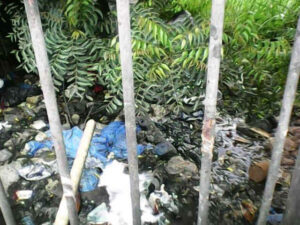
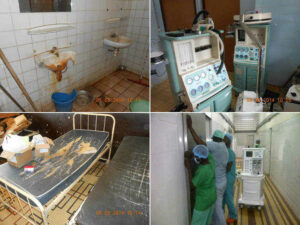
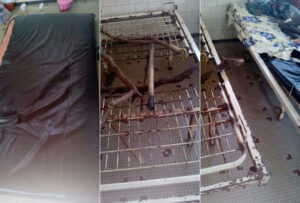
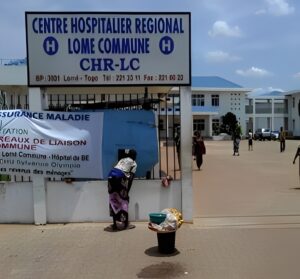
In many public services in Togo, the unsanitary conditions can no longer be ignored.
Another glaring example is the state of schools. They are in a deplorable condition—buildings that seem like they’re from the 4th century. And the education authorities don’t want anyone talking about it. Last time, a principal was removed from his position simply for speaking to journalists about the state of his school
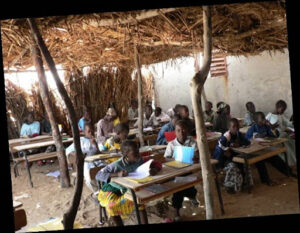
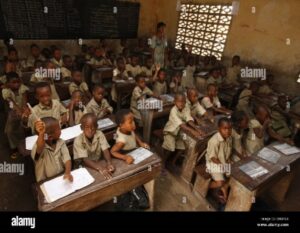
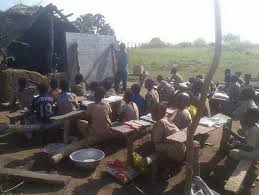 La
La
Criticism is necessary for improvement, yet Togolese are prevented from expressing their opinions. The governance of the country by Faure and his associates is truly chaotic, and at the same time, they show no concern for the population—abandoned to its tragic fate, neglected, and completely ignored.
This already devastating political, social, and economic situation has just been made worse by the last-minute constitutional amendments passed late at night on April 19, 2024, by lawmakers whose mandate had already expired. None of these actions can possibly bring joy to the Togolese people.
In Togo, while many citizens struggle to afford even basic meals in this costly living environment, the authorities—apart from their inflated salaries—enjoy additional privileges, all funded by Togolese taxpayers. And yet, this injustice means nothing to them.
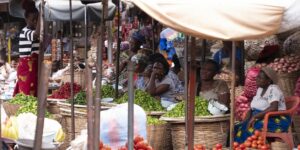
The last straw was the decision by the Togo Electric Power Company (CEET) which, through an interministerial decree (No. 072/MMRE/MEF/MPDC/MCACL of March 24, 2025), raised electricity prices—already considered too high for the population—while the authorities themselves have never paid a single electricity bill, despite consuming the most. This deeply alarming situation has angered all Togolese.
In the same vein, a famous artist named Aamron, who expressed his frustration on social media, was arrested in May 2025 by masked men and imprisoned. The authorities’ reaction has sparked widespread outrage across all sectors of society. A protest has been scheduled for June 6, coinciding with President Faure’s birthday, to demand his resignation—because everyone is tired and fed up.
From national and international media to social networks, political parties, and even the Conference of Bishops, the rallying cry “Free Aamron!” is being chanted everywhere.
In May 2025, the arrest of rapper Aamron for criticizing the government highlighted the ongoing climate of fear. His videos condemning the country’s “disastrous governance” led to a nighttime arrest, sparking condemnation from the Church and civil society. This has deepened social, economic, and political divisions, with 84% of Togolese fearing retaliation if they speak out against corruption. The 2024 Afrobarometer report confirms worsening poverty, fueling despair among the youth.
Another silencing tactic is the regime’s use of “terrorist threats” in the north to justify a state of emergency—while diverting security funds. Shockingly, 16.5% of the state budget goes to the military, compared to the African average of 5%. (Source : https://inff.org/assets/resource/efd_pnud-togo-dfa-final.pdf)
It is high time the ruling authorities prioritize fostering peace. To achieve this, concrete strategies and initiatives are essential:
-
First and foremost, there must be a commitment fueled by patriotic will and love for the nation
- Strengthen Civil Society and Women as Peacebuilders
The Humanist Party is committed to leading this vital struggle:
-
Campaigns against gender-based violence and arms trafficking.
-
Advocacy for the inclusion of women in decision-making processes, despite a “lack of government support.”
-
The National Action Plan 1325 (UN Women, Peace, and Security Resolution) aims to integrate women into mediation but lacks funding and clarity.
-
Fight against all forms of injustice.
- Educate and Mobilize Youth
Togolese youth are reduced to distractions, drinking, and hostels. They no longer dedicate time to reflection. Thus, the Humanist Party’s mission is to raise their awareness and guide them toward a awakening of consciousness to foster the country’s development. This will be achieved through various training sessions and workshops to help them become leaders, enabling them to prevent conflicts. The party plans to organize conferences with government members to encourage them to support Togolese youth in promoting love and social cohesion for lasting peace. Startup funding will be provided to empower them to act locally—an initiative that will also help combat terrorism in all its forms.
These initiatives counter recruitment by extremist groups, particularly in the terrorism-prone northern region
-
Urgent Institutional Reforms
-
Transitional Justice: Establish an independent commission to investigate political and economic crimes (assassinations, torture, corruption, embezzlement, misappropriation of funds, etc.). This action is essential to build trust.
-
Disarmament: Implement the goal of NAP 1325 to “reduce the circulation of small arms,” which currently remains unaddressed.
-
National Dialogue: The bishops’ 2025 call for a “sincere dialogue” must include the opposition and the diaspora.
Togo Stands at a Crossroads. The abuses of power—a colonial legacy perpetuated by an authoritarian dynasty—have plunged the country into violence. Yet, the resilience of civil society offers a glimmer of hope. Lasting peace can only be achieved through:
-
Protecting whistleblowers like Aamron, symbols of civic resistance.
-
Expanding international support for grassroots initiatives (Humanist Party, WILPF, PEACE-WAY).
-
Constitutional reform to guarantee democratic transition and judicial independence.
Peace is not merely a word—it is action.
Komlan AGBOSSOUMMONDE full member of HP of Togo


